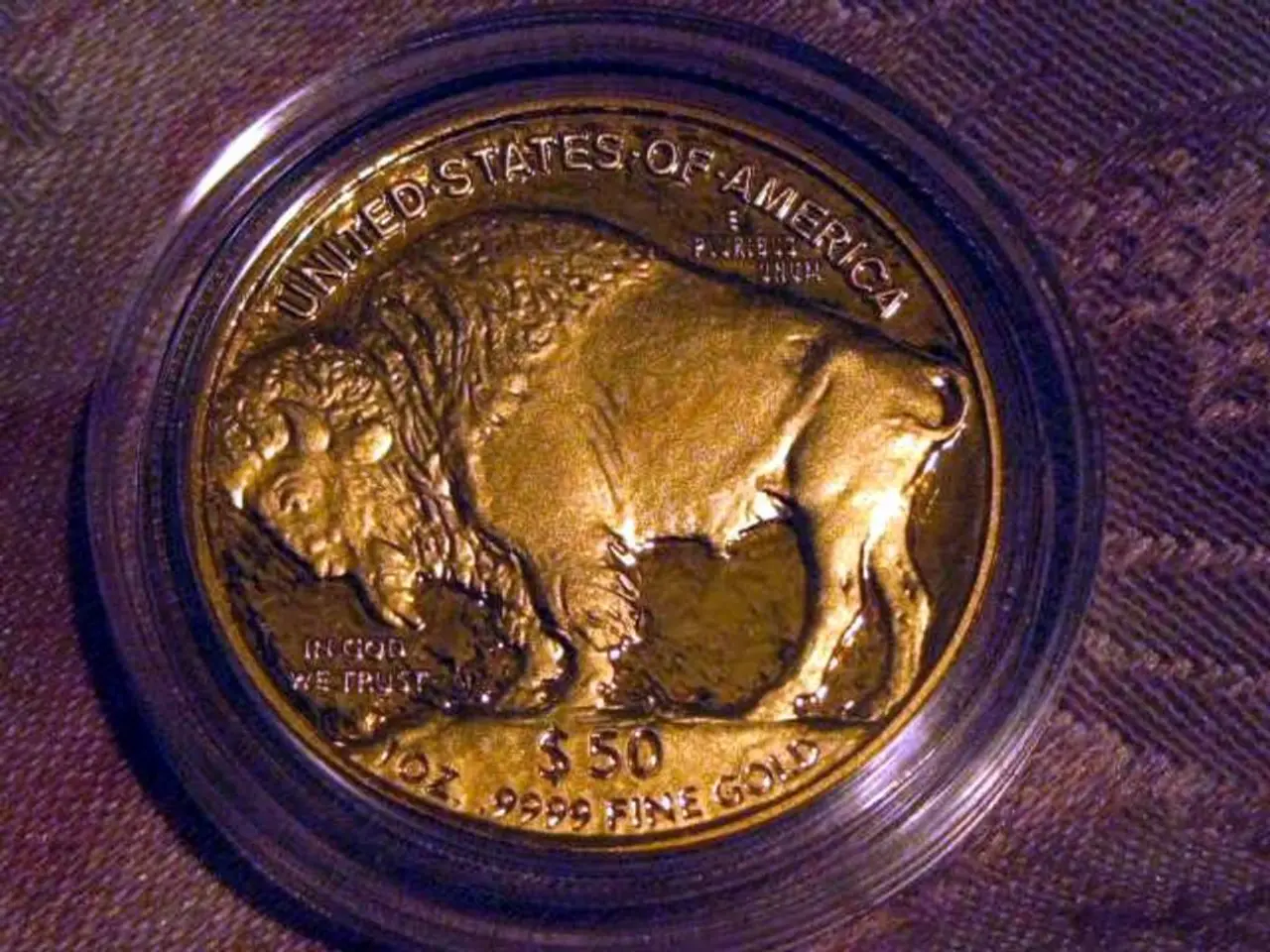Fed maintains elevated interest rates
Fed Stands Firm on Interest Rates Despite Pressure From Trump
In a surprising turn of events, the Federal Reserve once again refused to succumb to the pressure from President Donald Trump and kept the interest rates unchanged. The rates stay high, at around 4.25 to 4.5 percent, as announced by the Fed earlier this week. The economic outlook remains uncertain, according to the Fed.
The decision aligns with most analysts' predictions. After the COVID-19 pandemic, interest rates in the US surged to combat high inflation. Since then, there have been two rate cuts in 2022, but none this year.
Economic Growth Prospects Dim
The Fed now expects lower growth this year, forecasting a growth rate of 1.4 percent. In March, the Fed had already revised its economic outlook downward to a growth rate of 1.7 percent. The central bank also expects a higher inflation rate of 3.0 percent. In March, it had forecast a rate of 2.7 percent.
A majority of the Federal Reserve Board members anticipate two rate cuts of 0.25 percentage points each this year. This could result in the interest rate being around or slightly below four percent by the end of the year.
Rates Determine Lending Costs
The interest rate serves as the Federal Reserve's main tool for achieving its two primary goals: keeping inflation in check and maintaining low unemployment.
The interest rate determines the rate at which commercial banks can borrow from the central bank. Subsequently, this rate impacts the fees businesses and consumers pay. For instance, if the Fed reduces the interest rate, banks' own loans could become cheaper in the long run, affecting mortgage rates, car loans, corporate financing, and sometimes credit card interest rates. Cheaper loans could stimulate the economy by enabling Americans to spend more and offering credit-financed investments at lower costs.
The President's Demand for Lower Rates
Although the independence of the US Federal Reserve is legally guaranteed, President Trump frequently calls for lower interest rates to further boost the economy. He often personally attacks Fed Chairman Jerome Powell, last week referring to him as a "jerk." At times, he has suggested Powell should follow the European Central Bank's example of interest rate cuts. The ECB recently lowered its interest rate to 2.0 percent.
Fed's Resistance to Trump's Calls
According to the Fed's perspective, there is currently no urgent need for action on interest rates: The inflation rate is close to its target of 2 percent, and the labor market remains strong. Moreover, the economic outlook is uncertain - largely due to Trump's imposition of high tariffs on goods from multiple countries. These tariffs could increase the prices of imported goods and slow down growth in the United States. Trump's tariffs also burden the stock and bond markets.
Possible Consequences of Ongoing Trade Wars
The geopolitical situation could also factor into the Fed's considerations: If the war between Iran and Israel were to escalate, potential US military involvement could create significant oil market disruptions. Rising oil prices could hinder the US economy while being unlikely to raise substantial concern among central bankers regarding inflation, as the inflation rate is only slightly above the long-term target of around 2 percent. Consumer prices increased by 2.4 percent year-over-year in May.
Insights: President Trump consistently advocates for lowered interest rates to stimulate economic growth and ease the federal government's burdens related to servicing its substantial national debt, comprising nearly one-third of the $36 trillion national debt that requires refinancing. Lower interest rates could result in the government saving billions on interest payments, easing fiscal strain amid massive national debt. However, aggressive rate cuts could ignite inflation or destabilize long-term economic plans, leading to market and investor confidence issues if the Fed succumbs to political pressure.
President Trump has criticized Federal Reserve Chair Jerome Powell for not cutting rates more aggressively or sooner, labeling him as "Too Late." Trump has demanded a full percentage point cut in the benchmark federal funds rate, which is significantly larger than the Fed's typical quarter-point adjustments. Trump believes lower rates would serve as "rocket fuel" for the economy, given solid job growth and relatively low inflation. Nevertheless, the Federal Reserve operates independently and has resisted these demands, focusing on combating inflation and maintaining economic stability.
Sources:[1][2]
Despite the President's continued advocacy for lower interest rates to boost the economy and alleviate federal debt, the Federal Reserve's focus remains on maintaining financial stability and controlling inflation. Political pressure has not influenced the Fed's decision to keep rates unchanged, as they are determined by the economic outlook and general-news factors, including the uncertainty caused by ongoing business operations, finance, and politics.




